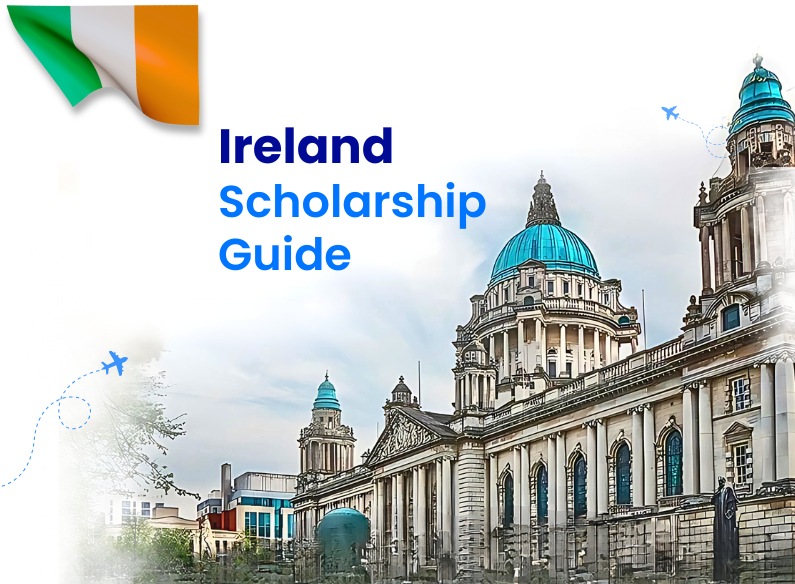Student ROI Stories: How Graduates Measure Success After Studying Abroad
Studying abroad is one of the boldest investments you can make in your future. From choosing a destination to securing a student visa, or a cost-effective programme to study in UK, and hunting for scholarships — every decision counts. But at the end of the journey, how do you measure success?
How do graduates judge whether this “study abroad” experience truly delivered return on investment (ROI)?
In this blog, we delve deep into student ROI stories, backed by data and real outcomes, and offer guidance for you to evaluate your own future abroad.
What do we mean by ROI after studying abroad?
When we talk about ROI – return on investment – in a study abroad context, we’re looking beyond fees and living costs. We examine:
- Academic ROI – Did the programme lead to progression to further studies (e.g., PhD or professional qualification)?
- Career ROI – Did the graduate land a satisfying job, higher salary, global career path?
- Personal/Global ROI – Did the experience expand networks, global mindset, adaptability, language skills?
- Financial ROI – Did the degree pay off relative to cost (tuition + living + lost alternatives)?
Given the rising cost of international degrees and the ever-competitive job market, measuring ROI helps you decide whether to pursue a masters in USA.
Real-world data: ROI indicators
Here are some compelling statistics that reveal how study-abroad alumni fare:
According to a survey by IES Abroad, 84% of alumni said their study-abroad experience helped them build job skills; 65% found a career-related job more quickly than expected; and 90% gained admission into their first or second choice of graduate/professional school.
A summary of multiple studies shows that study-abroad students in the U.S. are: 2× as likely to find employment within 12 months (vs non-study-abroad peers), earn about 25% higher starting salaries, and have lower unemployment rates.
For example, the average cost of a master’s for international students in the UK is around £17,109 (~ US$ 22,000) for taught classroom programmes.
These data suggest that studying abroad can pay off — academically, personally and professionally — but mindful planning is vital.
Student ROI Stories – What graduates highlight
Below are three common themes that graduates share when reflecting on their ROI.
1. Skill building & global network
Many international students emphasise that one of the most valuable dividends of studying abroad is the built-in global network and the cross-cultural skills. In the IES Abroad survey: 97% of alumni said the experience increased their maturity.
- Career acceleration
Graduates often report faster entry into professional roles, access to international employers, and higher starting salaries. For example: study-abroad alumni were more likely to be hired, and their salary advantage can accumulate over time.
3. Long-term mindset shift
Success isn’t only the first job; many measure ROI by how the experience changed their willingness to take risks, work in global teams, adapt to new cultures, or even relocate. A global mindset opens career paths — sometimes less obvious at the time of application.
How to measure your own ROI (and future story)
To turn your overseas degree into a meaningful ROI story, use the following checklist:
- Define your goals: Do you aim for USA? Or a cost-effective study in UK? Do you seek specific industry roles?
- Calculate total cost: Tuition + living expenses + visa + lost income. For example, many UK master’s cost international students ~ £21,180-45,180 including tuition and living.
- Forecast salary or role gain: Research what alumni are earning from that programme and in the industry.
- Account for soft outcomes: Improved language, adaptability, network, global mobility (post-study work visa benefits)
- Track outcomes: For example, how many months after graduation you got your first job, the relevance of that job to your degree, salary growth, whether you moved internationally or into high responsibility.
ROI Table – Sample Comparison
| Destination Programme | Estimated Cost | Post-Graduation Outcomes | Key ROI Indicators |
| Masters in USA (STEM) | High (tuition + living) | OPT/PGWP, global career | High salary premium, global brand |
| Masters in UK (1-yr) | ~ £17,000 tuition + living | Graduate Route visa 2 years | Short duration, quicker entry to job |
| Study abroad via scholarship | Lower cost due to funding | Leverage global network, lower debt burden | Balanced cost vs benefit |
Note: These are illustrative. Individual outcomes vary widely.
Story highlights: How graduates measure success
- Time-to-job: A major ROI measure is “how soon after graduation did I secure a job relevant to my degree?”
- Salary uplift: A graduate might compare starting salary to domestic peers or to what would have been possible had they stayed in their home country.
- Career trajectory: Did the experience enable a move into leadership roles, international mobility, or entrepreneurial ventures?
- Debt versus benefit: For many students funding via education loans, the debt burden and interest matter. Tracking how quickly you can pay off debt is key.
- Non-monetary returns: Sometimes it’s about personal growth, confidence, global mindset, and the ability to operate in diverse cultural settings.
Final thoughts
Your ROI story starts before you leave home and continues long after you graduate. It’s not just about the prestige of the university, but about the fit of the programme with your goals, the cost you incur, and the outcomes you drive. Accessing study abroad scholarships can dramatically lower your cost and improve ROI.
With proper planning, choosing the right destination, and taking full advantage of your study-abroad experience, you can turn your education into a success story. At Nomad Credit, we’re dedicated to helping international students unlock smart education loans and make informed decisions — because your future deserves clear-cut ROI.

Frequently Asked Questions
How soon after graduating can you measure ROI?
Typically you can assess within 6 to 12 months of finishing your degree: did you find relevant employment, what salary you earned, what responsibilities you have. But full ROI can take 3-5 years as your career progresses.
Does getting a scholarship guarantee a better ROI?
A scholarship reduces your cost (which improves ROI) but it doesn’t guarantee outcomes. You still need to select a programme aligned with career goals, build networks, and perform well.
If I do a masters in UK in one year, does that give me better ROI compared to a two-year programme?
Often yes: a one-year course means fewer living costs and quicker entry into employment. However, you must ensure the programme has strong industry links, good graduate outcomes, and aligns with your goals.
Can I measure non-monetary ROI, such as personal growth?
Absolutely. Non-monetary returns such as global mindset, intercultural competence, language fluency, and network can be harder to quantify but are very real and often the key differentiators in global careers.
How can I track my ROI over time?
Keep a simple spreadsheet: entry salary, role, location, progression in job responsibilities, career changes, debt repayment status, and personal milestones (like taking up global assignments or changing countries). Review annually.
Thinking About Studying Abroad?
Get Free Consultation for Study Abroad Loan & Admissions.
Related Blogs
Want to connect with
Our Experts?
We provide keep one to one counselling to
Study Abroad Aspirants









